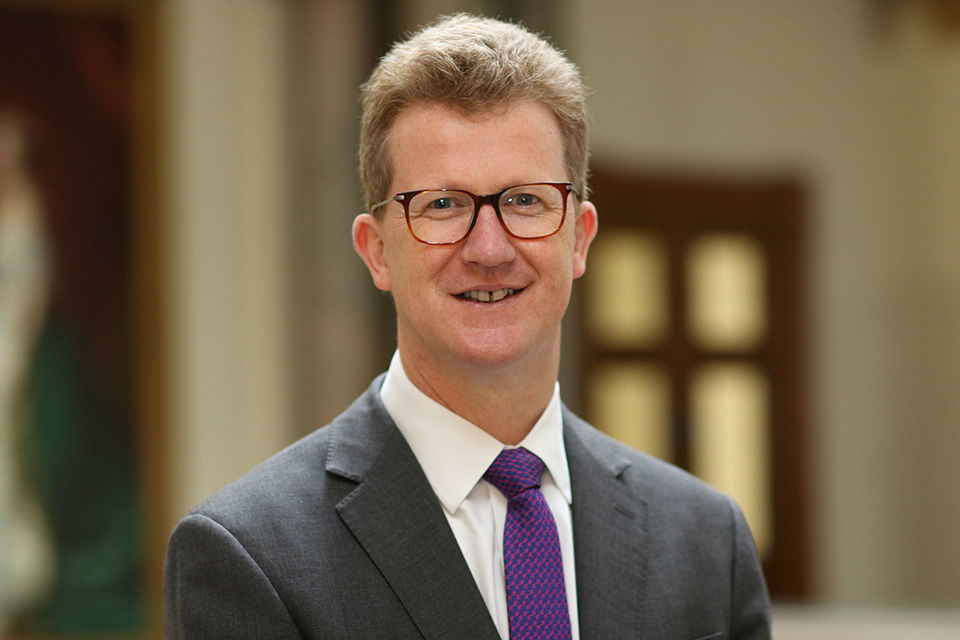Statement to the 109th Session of the Executive Council of the OPCW
Statement by Director of Defence and International Security, Foreign Commonwealth and Development Office, Mr Stephen Lillie, at the 109th Executive Council of the Organisation for the Prohibition of Chemical Weapons.

Mr Chair, Director General, Excellencies, Distinguished Delegates,
The UK welcomes Your Excellency, Ambassador Thomas Schieb as the new Chair of the Executive Council at this critical time. You have our full support.
Our thanks also to the Director General Fernando Arias for his detailed report.
Mr Chair,
Syria has demonstrated its commitment to destroying remaining elements of the Assad regime’s chemical weapons programme; and to holding accountable those responsible. The commitment of the new Syrian Government to achieve this, and it’s support to the Technical Secretariat has been exemplary.
The UK welcomes the efforts of OPCW staff on the ground and the important progress made during the three recent deployments they have undertaken this year. At last, this Council can look forward to Syria completing the task mandated by the UN Security Council after the horrific sarin attack in 2013, namely the complete destruction of the Assad regime’s chemical weapons programme.
We must take this opportunity and move at pace to deliver this work in the face of complex practical challenges. Close coordination will be needed between the Technical Secretariat, Syria and supporting States Parties to outline a sensible path and address immediate risks, while ensuring robust OPCW verification.
Both Syria and the OPCW will each need significant financial and in-kind support to finish the job. On 5 July, whilst in Damascus, my Foreign Secretary announced an additional £2 million of UK support to the OPCW’s Syria missions. This comes in addition to the £837,000 already transferred since December. We urge other states to provide complementary technical, financial and logistical assistance as soon as possible. Concerted international coordination of both financial and in-kind support is essential – we urge the TS and Syria to establish the mechanisms to do this without delay.
Mr Chair,
While we take the opportunity to turn the page on a dark period of the widespread use of chemical weapons in Syria this century, we must also redouble our efforts to make sure that all parties to the Chemical Weapons Convention ensure that they do all within their power to uphold the Convention, and to ensure that its central norm against use is re-enforced.
Today marks the seventh anniversary of the tragic death of Dawn Sturgess. She was killed as a result of Russia’s callous use of the nerve agent novichok in Salisbury.
While Syria seeks to rid itself of the previous regime’s chemical weapons, Russia continues to use chemical weapons and riot control agents on the battlefield in Ukraine. The statement published last week by the Dutch and German intelligence services in which they warn of the intensifying use of chemicals by Russia on the battlefield is a cause for great concern. This blatant disregard for the Convention is outrageous.
The British government announced today a second set of sanctions in response to Russia’s use of chemical weapons in Ukraine. The measures designate senior members of Russia’s Radiological, Chemical and Biological Defence Troops; and a Russian entity responsible for supplying RG-Vo riot control agent grenades to the Russian military being used against Ukraine.
The UK has provided a further £400,000 in extra-budgetary funding to the OPCW Assistance to Ukraine Fund. Since 2022, the UK has contributed over one million euros to this fund. Our support for Ukraine is steadfast. To quote Foreign Secretary David Lammy – “today – and every day – we stand with Ukraine”.
Mr Chair,
We are deeply concerned by the US determination that chemical weapons have been used in Sudan. We have noted Sudan’s response to Article IX requests submitted by the delegations of Chad, Mauritania, Benin and Guinea Bissau. We call on Sudan to follow through on its stated commitment to investigate thoroughly.
Mr Chair,
You will manage the process by which we will select the next Director General. DG Arias’ successor will have big shoes to fill. They will need to continue his work to shape the Organisation so it is fit to meet the challenges and opportunities of the 21st century: including consigning chemical weapons to history, ensuring that there is no re-emergence of a chemical threat and advancing work on emerging technologies. Promoting and ensuring a diverse TS staff, with gender equality at its heart, and strengthening capacity building around the world will be essential priorities.